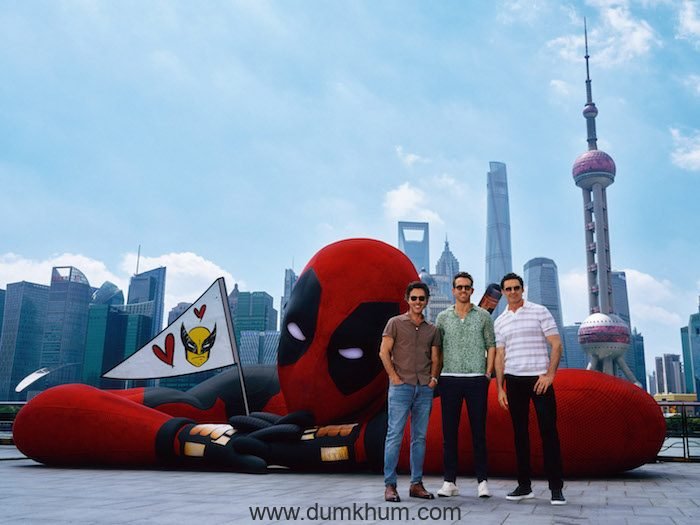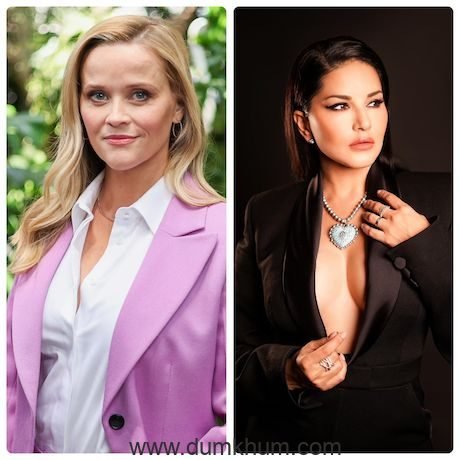Arts Festival Celebrates Indian-Americans in Film and Media

Washington, DC – The second annual intercollegiate South Asian Arts Festival (SAAF) broke new ground this Saturday by presenting an informative, inspiring, invigorating discussion on what it means to tread off the beaten path for many Indian-Americans and pursue careers in film, media and journalism. The speakers were well known in their own right: actor Omi Vaidya who catapulted to fame for his performance as Chatur Ramalingam or ‘The Silencer’ in the 2009 Bollywood blockbuster, ‘3 Idiots’; and Dr. Indira Somani, Assistant Professor in the Department of Media, Journalism and Film at Howard University, an award-winning independent producer and director of documentaries. Both speakers were refreshingly candid and struck a chord with the audience comprised mainly of undergraduate students at American University where the event was held on a picture-perfect Spring afternoon. Vaidya, who graduated with honors from New York University film school, admitted, “I am doing something that is a risk, is different, is not a traditional field and that takes a lot of courage, not only for me, but for everybody that supports me as well”! Fortunately for him, his family has always been “very supportive”, he said. “I don’t think that I would have been able to achieve what I have achieved so far without their help”. Vaidya’s mother aspired to be a Bollywood actress, but could not pursue a career in acting due to family pressure. She has realized her dreams through her son who dotes on her! Vaidya’s father and brother are both doctors, a profession well favored by Indian-Americans. “Family support was really critical”, the actor underscored. “I’m doing it on my own now and it’s not easy”, he said. Encouragement from his family also meant he never had to deal with social pressure from the Indian community for choosing a career in acting. “That was there”, he recalled. “But, I was oblivious to it. I thought, my family is fine with it. I was proud of what I was doing, and I still am. I have so many more relations now than before”, he quipped. For Somani, family support came much later, when she was in her mid twenties and working as a television news producer for CNBC and WJLA-TV, the ABC affiliate in Washington, DC. “In the initial years, I did feel that I have to prove myself”, she told the audience. “My Mom tells me that my Dad wasn’t speaking to me for a long time when I pursued my Masters in Journalism. I don’t remember much about our non-speaking days. But, I do know that I had to apply on my own, get financial aid on my own. I had absolutely no assistance from my parents”. Somani grew up in a small town in Springfield, Illinois. She always had a penchant for writing and began her career by covering the Indian Diaspora. “My first job in this industry was for $17,000 a year and I had student loans to repay”, she recalled. “It was the reality of what they had told us in Journalism School – to start out in a small market, make your mistakes in a small market and work your way up. By the time you get to a place like DC or New York, you don’t want to be making mistakes in a market that size”. It is noteworthy that the driving forces behind the Festival were all undergraduate students at American University – Madhavi Reddi, Anuj Gupta, Brad Korten and Palak Bhatnagar. It goes to their credit that they managed to juxtapose two interesting fields – film and journalism – in a heady discussion which kept the audience engrossed. Vaidya recounted, “When I was in film school, they didn’t teach us that you’re not going to get jobs or have to work free forever. That was really disturbing, a shock. A lot of my friends left film, became lawyers and doctors. They couldn’t deal with it and maybe didn’t have the support. I did have the support and I was versatile in my skills. You know me as an actor. But, I am a very seasoned editor”, he told the audience. In the initial stages of his career, Vaidya used his Indian connections to act in crossover films. “You will never see any of those films. They were terrible”, he said, with a refreshing candor. “But, I kept saying yes. I was open to anything. I just wanted to be there and do it. In some ways, I still am. I am always willing. If there is something to explore that I haven’t seen, let’s give it a try. I think a lot of it is attitude. It’s very easy to get discouraged. Sometimes, a break will come when you least expect it. Keep pushing, keep trying. You never know when opportunity knocks. It may not be the door you want to get in, but it could lead to that other door”. For Vaidya, “attitude is really important. That really gets you through life, not just your career”, he told the young listeners. “There will be a lot of curve balls thrown at you at work and in your personal life – family members fall ill, relationships end. The way that you approach every single day will lead you”, he said. “You could be a failure, but if your attitude is amazing, your life will be enjoyable. That’s really more important than everything else. We always try to pursue happiness from exterior things like a job, a girlfriend, marriage. We should really be pursuing meaning because it lasts throughout your life”. Somani emphasized, “I think you really have to want to be in this whether it is journalism or film or any media arts. You have to really want it because it is tough to break into”. Pointing out that there is more support for such fields now than 20 years ago, she referred to the efforts of the South Asian Journalists Association (SAJA) which serves as a networking and resource forum for journalists of South Asian origin all across the US. Somani reflected, “I look at the opportunities that came my way and that keeps me inspired and motivated”. It is important, she said, “to always be grateful and thankful for the opportunities that do come your way”. During the course of the event, short clips were shown from Somani’s documentary, ‘Crossing Lines’, and Vaidya’s roles in ‘3 Idiots’ and a documentary, ‘Big in Bollywood’, made by his friends which chronicles his fairy-tale success following the release of ‘3 Idiots’. ‘Crossing Lines’ is a biopic. It is a personal account of Somani’s ties to her father, who died in 2002, and through him to her relatives in India. About the storyline, she said, “For many of us who are born here in the US, our connection to India is through our parents for all intents and purposes. We have extended family there, but our first connection would be through our parents”. The film examines “what happens to that connection after one of them passes away”, she said. “How do you resolve the relationship you have with your extended family there”. Somani co-produced the documentary with Leena Jayaswal, Professor of Film and Media Arts at American University. The 30-minute documentary took about four years to complete and is now screened at film festivals around the country for discerning viewers. On a lighter note, Omi told the audience how he bagged the role in ‘3 Idiots’. He was in India pitching a film he had written when someone suggested that he audition for the Aamir Khan starrer. “I went just for the experience, with no expectation”, he recalled, and since “I had no expectation, my ability to perform was much better because I didn’t care”. Vaidya actually believed he would never get the role. “I went for failure”, he said, evoking laughter from the listeners. “That confidence was something that other people didn’t have because they wanted it, they wanted to be in an Aamir Khan film with Rajkumar Hirani as the director. I was just having fun. That is the philosophy behind how I have continued to work and look for new opportunities”. The fact that he wasn’t fluent in Hindi, coupled with a flair for humor, worked in his favor and he landed a role that was just tailor-made for him.
Vaidya recently starred in Washington-based filmmaker Manan Singh Katohora’s short film, ‘Public Relations’, shot here in the national capital region. We queried the actor about his involvement in the project. “Manan came up with this story where a CEO is homophobic about gays, only to be saved by people who are homosexual”, he told us. “That changes his perspective and shows him that they are not to be feared. They are just normal people like everyone else”, he said.
Vaidya added, “That was a really nice thing that Manan wanted to show. He approached me and I was available during that time. I came here and we shot the film over one night”, he said, in a restaurant, American Bistro, located in Owings Mill, MD, owned by Tejash Natali.
In a short span of six minutes, ‘Public Relations’ conveys a profound message! And it goes to the credit of actors like Vaidya who contribute to making this happen. “I travel all around the country and I’m always open to doing small films”, he said.
Vaidya asked us if we saw ‘Public Relations’ and was pleased when we replied in the affirmative. “The community is really responding to them”, he noted. “These people (filmmakers like Manan Singh) know the whole community, so these messages can get out. Maybe, more Indian people will be open to their son or daughter being gay (or lesbian) because they saw this film. It’s a butterfly effect. We don’t really know the effect of these things. But, just that we are putting an effort into (conveying) this message is enough. These sort of films, these sort of events have a far-reaching impact. I am connected to them; their successes are mine”, he said.








